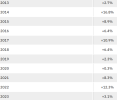presidenttttt
Registered User
- Messages
- 444
The landlord debate sparks heated emotions. The populism seems built on principles that include "we don't need landlords at all" and "they make their wealth in capital gains, so should swallow capped rent".
Two points in particular
1) A society needs landlords, and I would rather we had policies that empower local landlords, who reinvest wealth and jobs into our economy. As the alternative of impossible investment economics is foreign corporate funds that siphon profits abroad.
2) The capital gain point feels particular dangerous from perspective of disinformation and ignorant rhetoric. Capital gains are taxed by the government, not pocketed untouched. Arguing landlords should subsidize rents because of potential gains is incredible flawed logic — it’s like demanding businesses operate as charities. Government could reduce capital gains tax to support investment and recognise the capped cashflow, but that would also be attacked
Policy must balance tenant protections with incentives for local investment.The housing crisis is real, and hardworking people deserve better. But vilifying profitable local landlords drives them out, paving the way for corporate giants with no stake in our communities. Local landlords are already contributing nearly 50% of their income in tax, amongst the highest in the world.
I'm also disappointed in the likes of the social dems. I am as eager to find an alternative to FF and FG as many younger people are - however nobody seems to be offering solutions and leadership. Posting all over social media that everyone deserves a home and their rent should be practically free solves nothing for our society.
A good political party would leverage the energy and anger for actual solutions not votes at the cost of division and braking the fabric of society. For example identifying the policy levers driving cost to build and campaigning to change those - probably increasing the amount of zoned land and land hoarding tax, and removing design requirements like dual aspect which seems to drive huge cost nobody truly cares about
Two points in particular
1) A society needs landlords, and I would rather we had policies that empower local landlords, who reinvest wealth and jobs into our economy. As the alternative of impossible investment economics is foreign corporate funds that siphon profits abroad.
2) The capital gain point feels particular dangerous from perspective of disinformation and ignorant rhetoric. Capital gains are taxed by the government, not pocketed untouched. Arguing landlords should subsidize rents because of potential gains is incredible flawed logic — it’s like demanding businesses operate as charities. Government could reduce capital gains tax to support investment and recognise the capped cashflow, but that would also be attacked
Policy must balance tenant protections with incentives for local investment.The housing crisis is real, and hardworking people deserve better. But vilifying profitable local landlords drives them out, paving the way for corporate giants with no stake in our communities. Local landlords are already contributing nearly 50% of their income in tax, amongst the highest in the world.
I'm also disappointed in the likes of the social dems. I am as eager to find an alternative to FF and FG as many younger people are - however nobody seems to be offering solutions and leadership. Posting all over social media that everyone deserves a home and their rent should be practically free solves nothing for our society.
A good political party would leverage the energy and anger for actual solutions not votes at the cost of division and braking the fabric of society. For example identifying the policy levers driving cost to build and campaigning to change those - probably increasing the amount of zoned land and land hoarding tax, and removing design requirements like dual aspect which seems to drive huge cost nobody truly cares about
